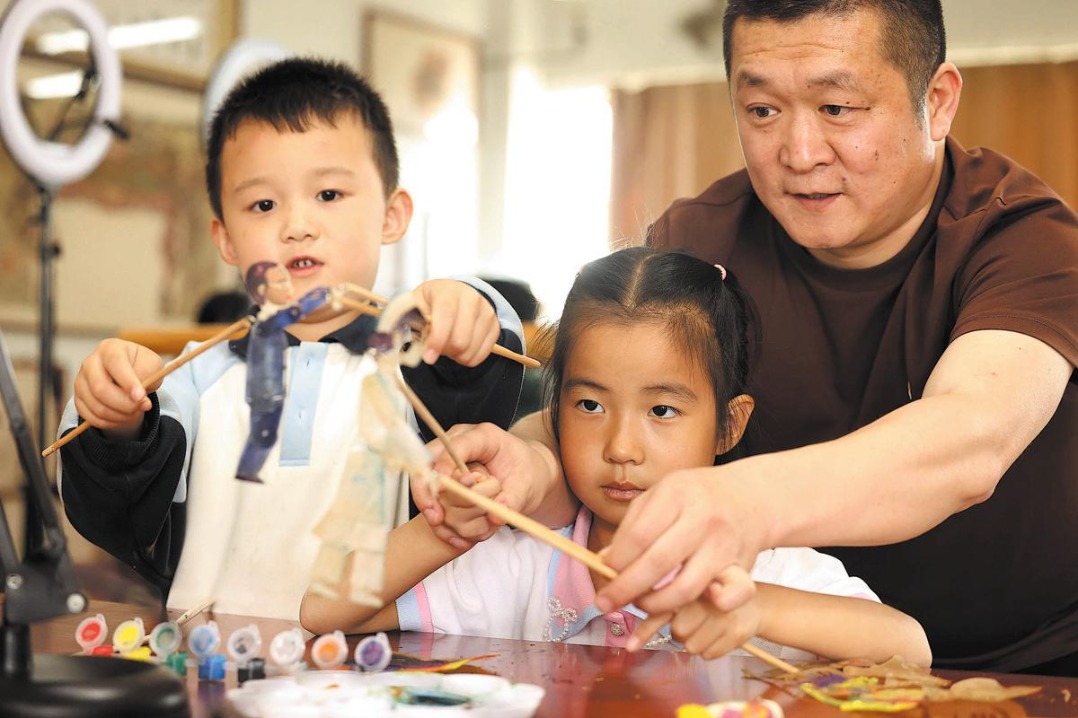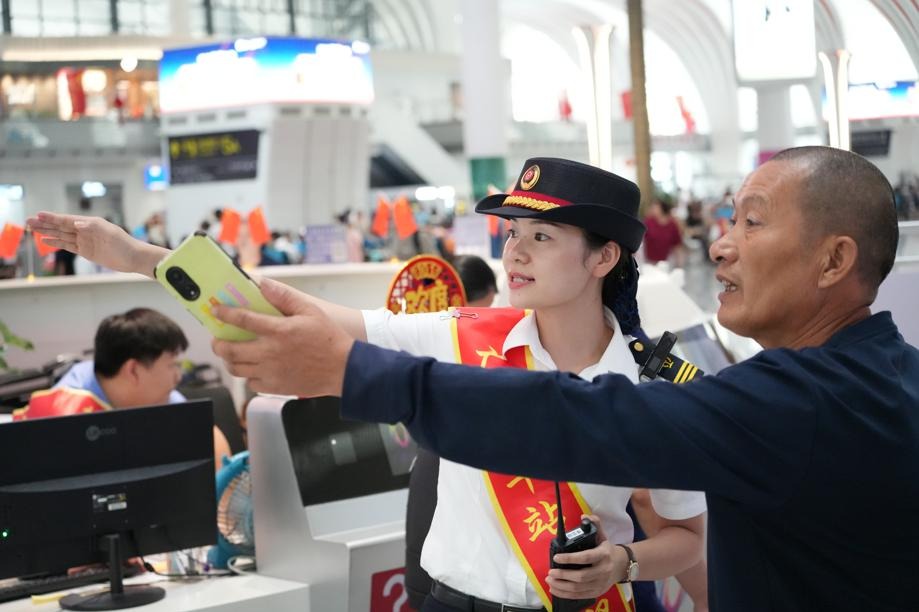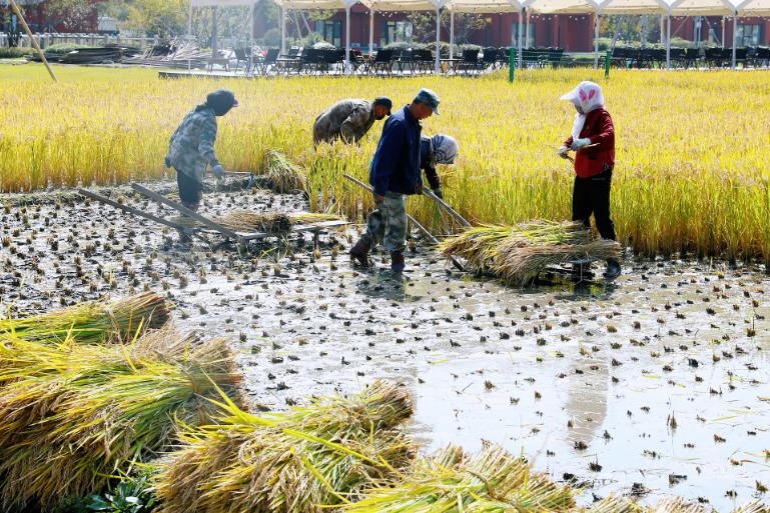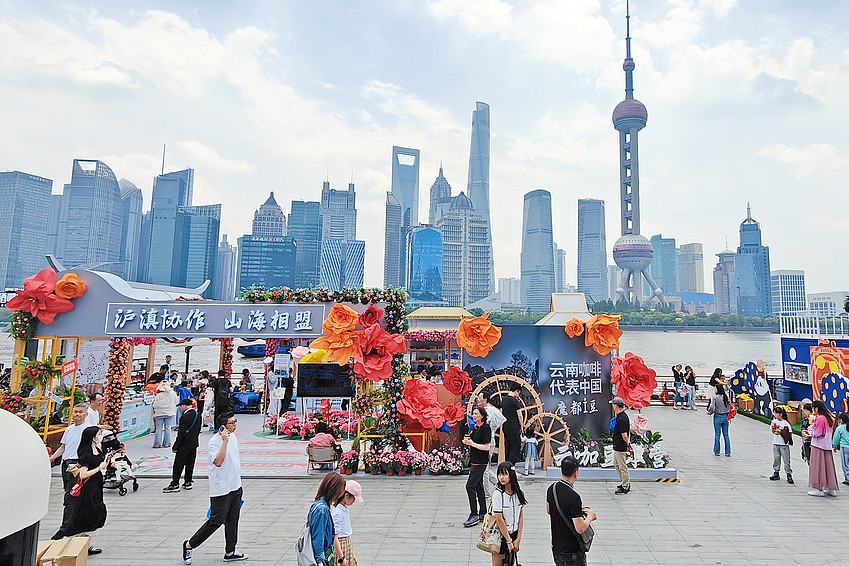More centers to open to help public suggest laws to NPC
Outreach offices also aim to promote legal education, foster national pride

More outreach offices for collecting legislative suggestions will be established nationwide to meet people's growing demand for greater public participation in lawmaking, an official from China's top legislature said.
The methods for gathering opinions at these offices will also become more convenient and efficient through the wider use of digital and intelligent platforms, according to Sun Zhenping, deputy head of the Legislative Affairs Commission of the Standing Committee of the National People's Congress.
Sun said the outreach offices will also take on more diverse roles, including promoting legal education and fostering a stronger sense of national community.
He unveiled the plan during a recent seminar marking the 10th anniversary of the establishment of the outreach offices.
In 2015, the commission set up its first four outreach offices to implement the central leadership's call for comprehensive law-based governance. The offices were opened in Xiangyang, Hubei province; Lintao, Gansu province; Jingdezhen, Jiangxi province; and the Hongqiao subdistrict of Shanghai.
The offices were created to solicit legislative suggestions from people from all walks of life and to ensure that "the people are the masters of the country."
After 10 years of continuous development, the number of outreach offices has grown to 54, covering the entire nation, Sun said.
"They have provided a smooth channel for the public at the grassroots level to express legislative ideas and voice their concerns," he said, likening the offices to a "direct train" that allows people's voices to reach the country's top legislative body.
Sun added that the outreach offices represent an innovation in putting China's whole-process people's democracy into practice in the new era.
From July 2015 to August 2025, the commission collected more than 58,000 legislative suggestions and opinions through the offices, over 3,500 of which were incorporated into laws, according to Sun.
Shi Hongli, deputy head of the commission's general office, said that through visits, surveys, video conferences and meetings, the outreach offices have strengthened ties with the public, listened to their opinions and addressed their concerns through legislative measures.
For example, during the drafting of amendments to the Science and Technology Popularization Law, Liu Ersheng, a 71-year-old Shanghai resident, visited the Hongqiao outreach office to suggest increasing discounts for young people at science and technology venues. Lawmakers later adopted his suggestion.
Under the revised law, which took effect in December 2024, young people can now enjoy free or discounted admission to such venues.
Gao Lina, a senior legislator with the commission, recalled another case in which students from the East China University of Political Science and Law offered advice on preventing internet addiction, domestic violence and school bullying while the Hongqiao office was collecting opinions on draft revisions to the Law on the Protection of Minors.
The draft had proposed that police issue warnings and require a child's guardian to pay a security deposit to the police if they are found to have committed domestic violence against the child.
"Some students suggested removing that provision, expressing concern that the security deposit could place a financial burden on some families and might not effectively protect minors — in fact, it could even be harmful to their development," Gao said. "We took their suggestion into account and ultimately accepted it."
After learning their proposal had been adopted, the students said they felt a strong sense of fulfillment and pride in contributing to the national lawmaking process, Gao said.
The focus of legislative suggestions varies by region. In Beijing's Chaoyang district — the city's most populous and largest area — most suggestions have centered on stimulating the economy, promoting urban development and boosting international exchanges.
Bao Yuefeng, deputy head of the standing committee of the Chaoyang People's Congress, said that since the district's outreach office was established in July 2021, it has provided 4,657 suggestions on 34 legislative items to the top legislature.
"Considering Chaoyang has over 300,000 registered market entities, we've focused on collecting suggestions for economic laws such as the Company Law, Anti-Monopoly Law and Arbitration Law," she said. "For the Company Law alone, we gathered 421 public suggestions."
"Furthermore, lawyers in Chaoyang account for more than 52 percent of Beijing's total, making the district's lawyers association an indispensable force in our legislative work," Bao said, adding that the association has submitted more than 850 suggestions and opinions on 25 legal draft proposals.
caoyin@chinadaily.com.cn





































